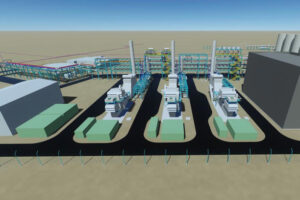Food banks crucial in cutting global emissions, says report
A report into food banks operating in 57 countries claims they reduce 10.54 billion kg of CO2-eq a year, equivalent to nearly 2.2 million passenger vehicles, due to reduced wastage.
The report, published by non-profit organisation The Global FoodBanking Network (GFN), also found that the food bank networks of GFN, the European Food Banks Federation (FEBA) and Feeding America serve 62.5 million people and prevent approximately 2.68 million metric tons of safe, edible surplus food being wasted.
In the UK, it’s estimated £13bn of edible food is thrown away from households every year.
The GFN is calling on food producers, retailers, and governments to adopt simplified label recommendations, as they believe that currently 20% of safe, edible food is wasted over confusion with ‘best by,’ ‘best before,’ ‘use by,’ and ‘sell by’ dates on packages.
Lisa Moon, GFN president and CEO, said; ‘The “Waste Not, Want Not” report highlights the large-scale environmental and social impact of food banks, a community-based model that is positioned to address both the paradox of global hunger and food waste during a time when hunger rates are regrettably on the rise.
‘This community-based approach must be considered as a pivotal, stop gap solution in the fight against hunger, alongside public policy change that addresses the root causes of poverty.’
Dave Lewis, CEO of Tesco, will speak at a GFN conference this week, and he said the supermarket chain is committed to reducing the amount of food it throws away each year.
He said: ‘Globally more than 800 million people are going hungry whilst a third of all food never gets eaten.
‘At Tesco, we’re committed to ensuring no good food goes to waste and we’re now donating over 300,000 meals of surplus food to over 7,000 charities and community groups each week working in partnership with FareShare.
‘But we know there is more we can do – food banks play a crucial role in tackling global hunger and reducing food waste and today’s Food Bank Leadership Institute is a great opportunity for food banks, retailers and other involved stakeholders to come together to share their experiences so we can collectively learn and maximize our impact.’















